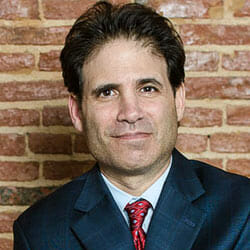Slip and fall accidents happen. They are a part of life. However, sometimes you can be seriously injured and will need medical attention and could miss work. If your slip and fall accident was the fault of someone else, such as a property owner, you may be entitled to compensation for your injuries.
Property owners should be held accountable, and you will need an experienced and knowledgeable Baltimore slip and fall lawyer to guide you through the process to make you financially whole again and to be compensated for your injuries.
What a Baltimore Slip and Fall Attorney Can Do for You
You should not have to go through the process of handling your claim on your own. In fact, you will be doing yourself a disservice if you don’t hire a legal professional to fight for your rights. An experienced slip and fall lawyer can help with the following:
- Meet with you and discuss your case to get a better sense of your injuries and how the incident occurred.
- File any paperwork with the courts and with the insurance companies. All documents need to be filled out and filed timely and in the correct manner or your case could be at risk.
- Contact the insurance companies on your behalf so that you don’t have to deal with this stress.
- Negotiate with the at-fault party and their insurance company to make sure that you are getting the highest compensation possible for your injuries.
- Speak with any witnesses to the slip and fall accident and hire any experts that will be helpful in proving your case.
If you have been involved in a slip and fall accident, call Baltimore personal injury lawyer Steven H. Heisler at (410) 625-4878 for a free consultation. We work on a contingency fee basis. That means that we don’t get paid unless you are compensated.
Why Choose Steven H. Heisler for Your Baltimore Slip and Fall Lawyer
There are a lot of slip and fall lawyers in Baltimore, but you will want one with experience, tenacity, and a no-nonsense approach, who will fight for every last dime. Steven H. Heisler is your slip and fall attorney because of the following reasons:
- Before becoming a lawyer, Steve was an organizer for the Hotel Employees and Restaurant Employees Union, Local #7. He worked hard for the people in the union and fought for their rights as workers. He will do the same for you as a client.
- Steve is a fighter. He was a boxer, and his career included winning the 1979 Central Pennsylvania Novice Golden Gloves and the 1980 South Atlantic AAU bantamweight title. You will want Steve to fight for your rights, because he has been fighting for most of his life.
- Since graduating law school in 1988, he has focused his practice on personal injury cases, fighting for his clients’ rights against the big insurance companies and large corporations.
- Don’t just take his word for it. Read about Steve’s successes in the words of past clients, who have told him how satisfied they were with the representation they received.
- Steve has gotten millions of dollars in settlements for his clients, including a $5.5 million settlement in an automobile accident.
Don’t you want a fighter on your side? Then call Baltimore slip and fall attorney Steven H. Heisler today at (410) 625-4878 for a free consultation to get the compensation you deserve.
Determining Liability in Baltimore Slip and Fall Cases
An important part of your slip and fall case will be proving fault. Maryland is a contributory negligence state, which means that an injured individual cannot recover if they are one percent (1%) at fault for the incident. In order to hold a property owner liable for your injuries, you will need to prove the following:
- The injured individual was not one percent (1%) or more at fault.
- The property owner knew that there was a dangerous condition on their land or in their building.
- The property owner did not attempt to or did not fix the dangerous condition on his land or in his building.
- The property owner did not warn you that there was a dangerous condition present in his building or on his land.
Proving liability is one of the most pertinent parts of your case and you will need an attorney with the experience to make sure this is accomplished. Steven H. Heisler is that type of attorney.
Your Baltimore Slip and Fall Lawyer Answers Your Important Questions.
While every case is different, Steven H. Heisler often hears similar questions from his clients. Some of these questions are outlined below.
How long do I have to file a slip and fall claim in Baltimore?
According to Maryland Courts & Judicial Proceedings Code section 5-101, you have three years from the date of the slip and fall accident to file a lawsuit.
How much money will I receive from my injuries?
Every case is different, depending on the severity of the injuries, the county where the incident happened, and the facts of the case.
What should I do after a slip and fall accident?
The first thing to do is to notify the property owner that you were injured due to an unsafe condition on their property. Next, pull out your cell phone and take photos of the dangerous condition. Photos are crucial because the property owner and the insurance company will deny they did anything wrong. Next, get medical assistance if you are injured. Call 911 and have your injuries looked at. Recovering from your slip and fall accident is of utmost importance. Leave the legal stuff to us.
How much will it cost to hire you as my slip and fall attorney?
We work on a contingency fee basis, which means you only pay us if we collect money for your injuries. If you don’t get paid, we don’t get paid. Pure and simple.
I have medical bills now. What should I do?
You should use your health insurance to pay for your medical bills. Any financial resolution of your case won’t occur until you have completed your treatment. Keep a record of any invoices that you receive for out-of-pocket expenses. These can be used to calculate compensation for your injuries.
Will I receive compensation for my injuries?
Whether you are entitled to a monetary resolution of your case depends on a few things. Slip and fall cases are difficult cases because if you are partially to blame, you cannot recover. If you are not at fault and we can prove the property owner had notice of the defective condition on his/her property, then there is a good chance we can resolve the case. The more significant the injury, the more valuable your case may be.
Injury lawyer Steven H. Heisler knows that you will have specific questions about your case, but he hopes that these common answers to your questions will help you decide about hiring him as your Baltimore slip and fall attorney. Contact or call injury lawyer Steven H. Heisler today at (410) 625-4878 for a free consultation.

Attorney Steve Heisler
Steve Heisler decided in 1996 that he was going to focus his law practice exclusively on injury cases. Since then, he has been representing injured people against insurance companies, disreputable medical practitioners and Big Pharma, and doing it with compassion, honesty and level-headed rationality. [ Attorney Bio ]

